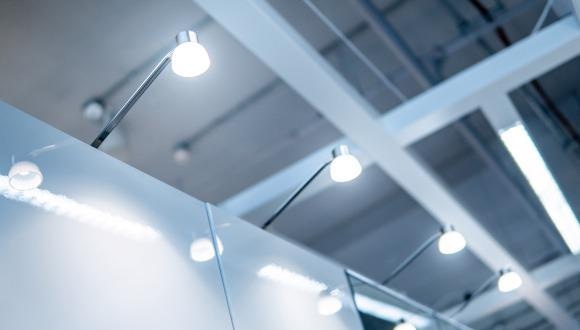
Image Credit: Tel Aviv University.
According to the research team, the UV-LED technology could soon be available for commercial and private use. This is the first study performed on the disinfection efficiency of UV-LED irradiation at a range of wavelengths or frequencies on a virus belonging to the coronavirus family.
Led by Professor Hadas Mamane, Head of the Environmental Engineering Program at TAU’s School of Mechanical Engineering, Iby and Aladar Fleischman Faculty of Engineering, the study was published in the November 2020 issue of the Journal of Photochemistry and Photobiology B: Biology.
The entire world is currently looking for effective solutions to disinfect the coronavirus. The problem is that in order to disinfect a bus, train, sports hall, or plane by chemical spraying, you need physical manpower, and in order for the spraying to be effective, you have to give the chemical time to act on the surface.
Professor Hadas Mamane, Head of the Environmental Engineering Program, School of Mechanical Engineering, Iby and Aladar Fleischman Faculty of Engineering, Tel Aviv University
“Disinfection systems based on LED bulbs, however, can be installed in the ventilation system and air conditioner, for example, and sterilize the air sucked in and then emitted into the room,” added Professor Mamane.
We discovered that it is quite simple to kill the coronavirus using LED bulbs that radiate ultraviolet light. We killed the viruses using cheaper and more readily available LED bulbs, which consume little energy and do not contain mercury like regular bulbs. Our research has commercial and societal implications, given the possibility of using such LED bulbs in all areas of our lives, safely and quickly.
Professor Hadas Mamane, Head of the Environmental Engineering Program, School of Mechanical Engineering, Iby and Aladar Fleischman Faculty of Engineering, Tel Aviv University
The team tested the ideal wavelength for destroying the coronavirus and identified that a length of 285 nm was nearly as efficient at killing the virus similar to a wavelength of 265 nm, necessitating less than 30 seconds to kill over 99.9% of the coronaviruses.
This result is crucial as the cost of 285 nm LED bulbs is considerably lower compared to that of 265 nm bulbs, with the former also being more readily available.
With the advancement of science, the industry could make the required adjustments and install the bulbs in air conditioning, vacuum and water systems or robotic systems and thus be able to effectively disinfect large spaces and surfaces. Professor Mamane hopes that the technology will be available for use very soon.
It is vital to note that it is very risky to make attempts to use this approach for disinfecting surfaces within homes. For a system to be fully effective, it must be engineered such that a person is not directly exposed to the UV light.
The research team, in the future, will test their exclusive combination of combined damage mechanisms and other concepts recently developed by them on integrated, efficient direct and indirect damage to viruses and bacteria on various surfaces, air and water.
The research was performed in collaboration with Professor Yoram Gerchman of Oranim College; Dr. Michal Mandelboim, Director of the National Center for Influenza and Respiratory Viruses at Sheba Medical Center at Tel HaShomer; and Nehemya Friedman from Tel Hashomer.
Journal Reference:
Gerchman, Y., et al. (2020) UV-LED disinfection of Coronavirus: Wavelength effect. Journal of Photochemistry and Photobiology B: Biology. doi.org/10.1016/j.jphotobiol.2020.112044.